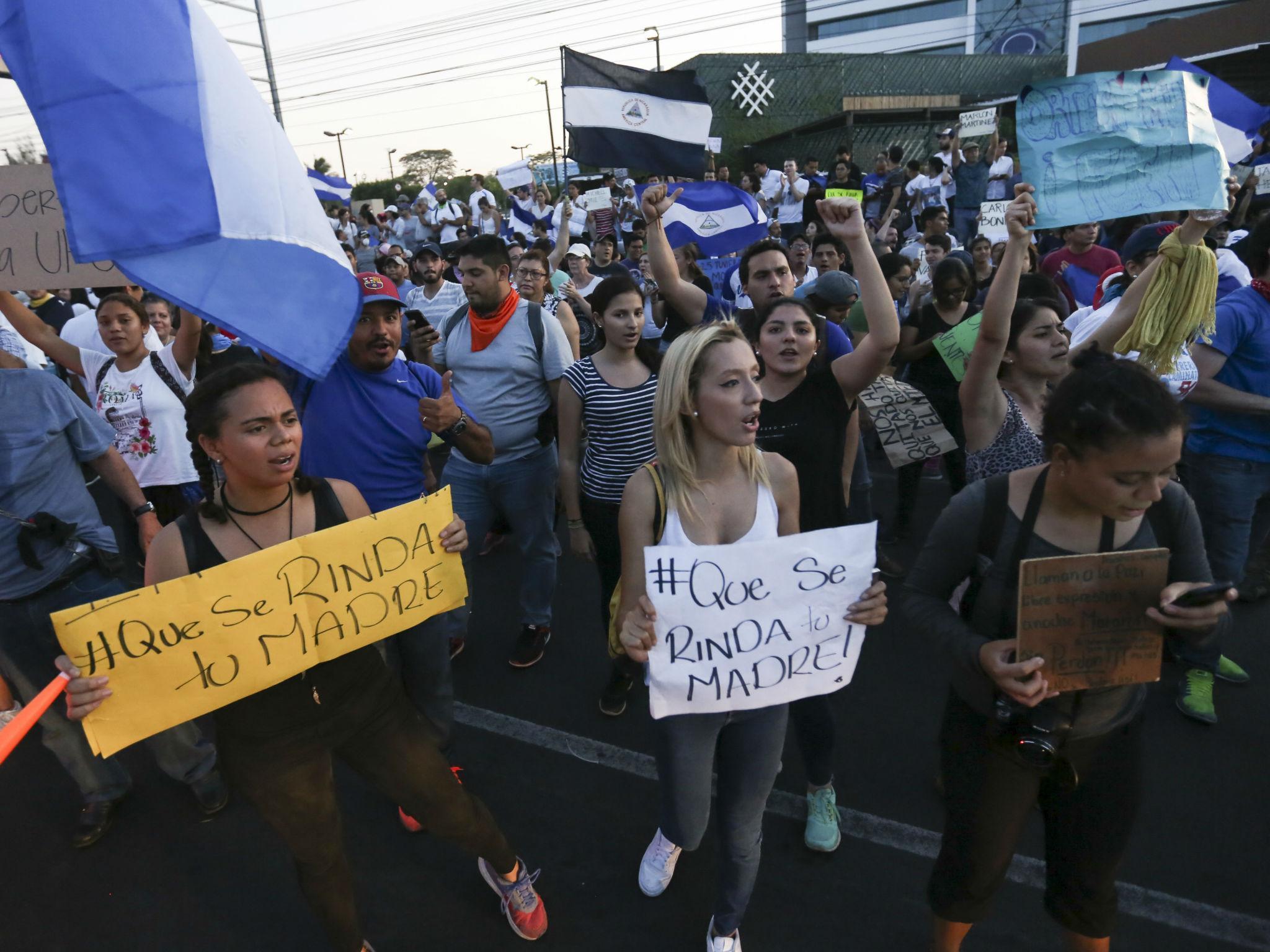UN condemns Nicaraguan government's 'unacceptable' use of lethal force against protesters
UN human rights inspectors are concerned about new law that makes it easier for government to arrest people for 'terrorism'

Your support helps us to tell the story
From reproductive rights to climate change to Big Tech, The Independent is on the ground when the story is developing. Whether it's investigating the financials of Elon Musk's pro-Trump PAC or producing our latest documentary, 'The A Word', which shines a light on the American women fighting for reproductive rights, we know how important it is to parse out the facts from the messaging.
At such a critical moment in US history, we need reporters on the ground. Your donation allows us to keep sending journalists to speak to both sides of the story.
The Independent is trusted by Americans across the entire political spectrum. And unlike many other quality news outlets, we choose not to lock Americans out of our reporting and analysis with paywalls. We believe quality journalism should be available to everyone, paid for by those who can afford it.
Your support makes all the difference.Police and authorities in Nicaragua have used "unacceptable" lethal force against civilian protestors, says the UN's human rights office as it called for a halt to violence in which an estimated 280 people have died since April.
"A wide range of human rights violations are being committed including extrajudicial killings, torture, arbitrary detentions, and denying people the right to freedom of expression," UN human rights spokesman Rupert Colville told a news briefing.
Protests arose in April over a plan by President Daniel Ortega's government to trim pension benefits. The government backed down but its heavy-handed response to the demonstrations sparked a wider protest against Mr Ortega's rule.
The president is a former Marxist guerrilla leader who has held power since 2007. He also ruled the country from 1979 to 1990.
The death toll includes at least 19 police officers, said Mr Colville.
"The great majority of violations are by government or armed elements who seem to be working in tandem with them," Mr Colville told Reuters, adding that the protesters were mainly peaceful though some were armed.
On Monday, UN Secretary-General Antonio Guterres condemned groups linked to Nicaragua's government for using "unacceptable" lethal force against citizens, and urged an end to the violence.
The UN human rights office called on the government to provide information on two activists missing since they were detained at the airport last week and to open all prisons to monitors.
Two activists, Medardo Mairena and Pedro Mena, were detained by police at Managua airport on Friday and authorities have not told their families where they are despite judicial requests, Mr Colville said.
UN human rights officials have been granted access later on Tuesday to visit one Managua prison, La Modelo, which could be a "small breakthrough", he added .
But officials remain concerned about the effect of a law passed this week with a very broad definition of terrorism. They say it could be invoked against people simply exercising their right to protest.
Associated Press
Join our commenting forum
Join thought-provoking conversations, follow other Independent readers and see their replies
Comments